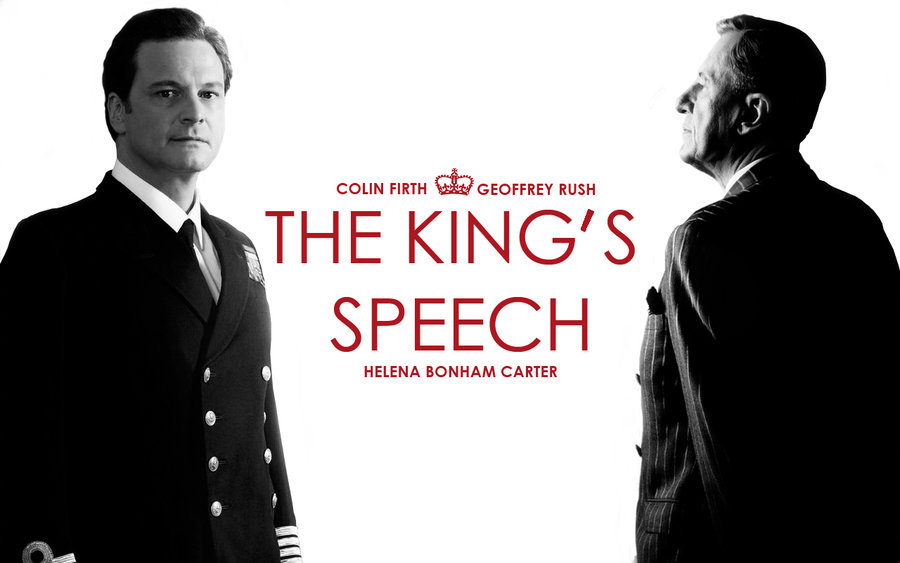Plot Synopsis
Colin Firth plays Albert (or Bertie), the Duke of York and son of King George V (Michael Gambon). The movie is based in the 1930s, and begins some years before World War II breaks out. After the death of George V, and the abdication of Bertie’s older brother Edward VIII (Guy Pierce), Bertie must take the throne, against his desires, as King George VI.
Bertie has suffered from a serious speech defect for as long as he can remember, and has failed to overcome it despite the help of every physician and speech therapist available. His wife Elizabeth – the future Queen Mother – played by Helena Bonham Carter, decides to try one more time, despite Bertie giving up. She pays a visit to Lionel Logue (Geoffrey Rush), a proud and eccentric speech therapist. The majority of the movie focuses on the relationship that develops between Bertie and Logue, and the painstaking efforts each makes to cure the future King’s speech impediment. I watched the full movie for free at 123movies, you can too if you want to save some money.
Colin Firth Deserves An Oscar
When I first heard the rave reviews that this movie was receiving, I couldn’t imagine how such a dreadfully dull-sounding plot could be so well received. Well, I watched the movie, and I understood.
I’ve always been a fan of Colin Firth. He’s a very good actor, in his understated way, but this is surely his masterpiece. From the harrowing first scene of the movie – where Bertie is attempting to make a speech, and is failing, failing miserably – the viewer is hooked. You can feel the anguish he feels, almost visibly palpable, as he struggles to spit out the words.
It’s hard not feel immense sympathy for Bertie throughout the movie. Despite his brash and arrogant manner, his attitude that his royalty should be respected, it was easy to see that he was intensely insecure, and wanted little to do with monarchy, and the responsibilities of being King. Firth’s excellent acting ensured that this complicated and multi-layered character was fully portrayed.
While a number of impressive performances have been highlighted for the Best Actor nomination, it would be hard to look beyond Colin Firth winning the award. Geoffrey Rush, too, delivers a lively and gripping performance, both serious and comedic, often at the same time. Were it not for Firth, this review would perhaps have praised Geoffrey Rush a lot more than it has.
Perfect Storytelling Goes Along With Masterful Performances
The pace of the movie is not too fast so as to leave the viewer behind on what is essentially a slow plot. Nor is it too slow so as to bore the audience to sleep. It moves along at just the right pace, and is never overly dramatic or triumphalist. It emphasizes the courage of Bertie in battling his speech impediment, and by extension the courage of all those who face such a problem, who often are forced to suffer silently. Even the final speech he makes in the movie is halting and labored, and delivered with the assistance of logue. And yet it is a triumph, a victory. It’s delivery is hardly Martin Luther King-esque, and yet it is a huge improvement over his earlier efforts, a manificent victory for the man.
Not that there is no occasion to laugh in the movie. There is a wickedly entertaining scene where Logue suggests that Bertie experiment with the use of profanity to help him express himself. It turns out that Bertie really isn’t very well trained in the art of vulgarity, and his attempts to release his frustration using what few four letter expletives he knows is truly funny.
Verdict
Not flawless, but almost. This movie is highly entertaining, and certainly packs a punch. It’s received a lot of media attention lately, but it deserves it.
10/10

